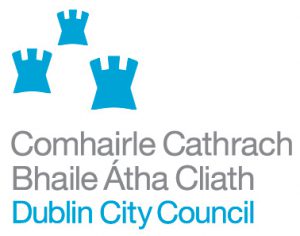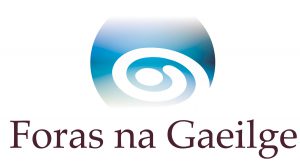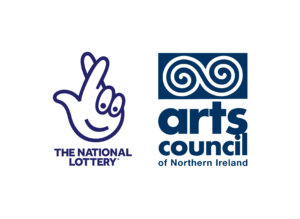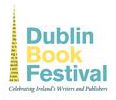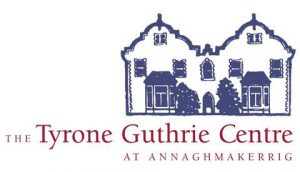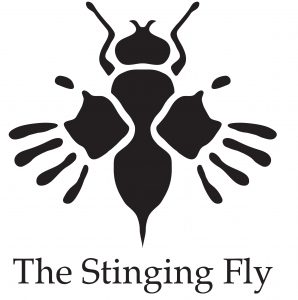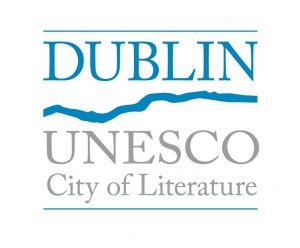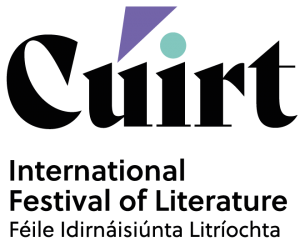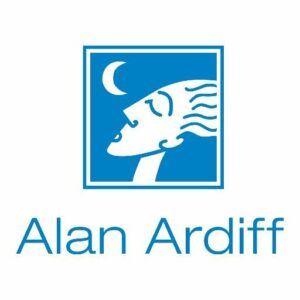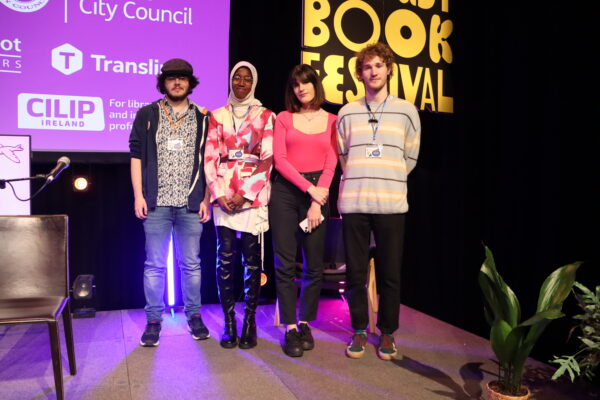
29 June, 2023
Our Young Writer Delegates look back on Belfast Book Festival 2023
Earlier this month, writers, readers and book-lovers from far and wide travelled to Belfast for the Belfast Book Festival 2023. From the 13th to the 18th of June, attendees were treated to a week full of readings, conversations, film screenings, walking tours, events and special guests, which showcased new voices and a wide range of writing.
Among the attendees were our IWC/Belfast Book Festival Young Writer Delegates, Cian Dunne, Fatoumata Gandega, Caleb McKeever and Sarah McMahon. Each year, the delegates attend events of their choice and write a review of their experience; here are the reviews our delegates wrote up for BBF 2023!
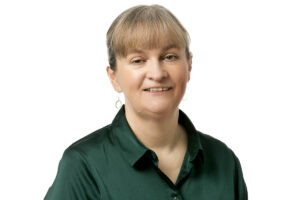
Photo headshot: Deirdre Madden
Deirdre Madden in conversation with Wendy Erskine
Reviewed by Cian Dunne
The final event of the festival’s first full day saw two of Northern Ireland’s most esteemed prose writers in conversation – Wendy Erskine and Deirdre Madden. Taking place on the back of the Mairtín Crawford awards ceremony, there was a celebratory mood as the packed audience settled in the Cube theatre, anticipating a veritable literary treat.
Madden began with a reading from her most recent novel, Time Present and Time Past. The narrative flits dreamily from the surreal to the substantive, engaging and enchanting the listeners all the way to the final uttered sentence: ‘And now, like the fading of a dream, Fintan gradually becomes aware…’ Given her projections into the future lives of her characters in the novel, Erskine wondered whether Madden was surprised by disgruntled responses from some readers, suggesting that they may have seen this as an encroachment on their own territory. Questions of authorial intent and the ‘death of the author’ thoughtfully considered, Erskine delivered, directly to Madden, a definitive judgement to which we could all defer – ‘You’re the boss!’
Erskine queried as to which comes first – the characters or the ideas? Madden’s illumination was creatively communicated; she likened the process of writing a novel to the scrabbling after the narrative of a dream, but in reverse. Upon waking, even the most vivid of dreams become more nebulous as time passes, until only a vestige remains. Conversely, the writing of a novel begins with a vague idea, the subsequent process a means of putting the story of the ‘dream’ into formation. The equivalent clarity of the moment when you awake from the dream comes only at the end of the novel– a complete story, fully realised.
Madden, a teacher of creative writing at Trinity College Dublin, also offered some practical writing advice. She conceded that, despite a career-long dedication to her craft, she has found technology increasingly antithetical to a sustained focus and concentration. She encourages her students (she acknowledged in vain) to attempt writing at first in longhand, noting the qualitative change that occurs in the transition from page to screen: ‘Typing looks too good too soon.’ Madden urged writers to labour over their work. She noted that bad novels from time past don’t speak to us now, whereas a genuine work of art stands outside time. To create something meaningful, hopefully to outlast you, you must be willing to give it the time it demands and deserves.
Madden introduced a second passage, from One by One in the Darkness, one which Erskine enthusiastically recognised in advance of it being read aloud. Madden admitted shock at the darkness of her earlier work, leading her to the conclusion that the Troubles have formed an undeniable part of her mental make-up. That said, she made the wider point that young people are bound to wrestle against the world in their youth, but assured that things do get easier. She is proud to have this reflected in her own literary output, with the later works possessing a more redemptive quality, affirming the primacy of family and intimate relations with others.
One of the great pleasures of such events is to hear a masterful storyteller tell a story in real time, out of their own mouth, in their own voice – to perceive the tale being conceived off the cuff. The audience was granted this privilege midway through, with Erskine’s simple request: ‘Can you take us back in time now, Deirdre?’ Madden was only too willing. She recounted the occasion of being informed about the publication of her debut, Hidden Symptoms, in 1986. This news came as a great joy given her conviction to become an author in her teenage years. Having previously completed an MA in Creative Writing at UEA under the tutelage of Malcolm Bradbury and Angela Carter, Madden was living in London at the time.
She paints a gorgeously nostalgic picture – travelling on the Hampstead Northern Line, on her way home, missing her intended stop, watching towns, fields, stations passing by. The processing of the sheer elation of her achievement coincides with the realisation that she has absolutely no idea where she is, or where she is going. The train keeps trundling along, in completely the wrong direction. She allows it. The entire audience can see the memory of her smile, can feel the dizzy lightness of her head, the ache in her high-strained cheeks on the return journey home that day: ‘And I did not care. I was so, so, so happy.’
More details about the event can be found on the Belfast Book Festival website.
Headhots: Craig Jordan-Baker, Eimear McGeown & Cherry Smyth
If the River is Hidden
Reviewed by Fatoumata Gandega
On the evening of Saturday 18th June, the performance of If The River Is Hidden took place on the ground floor of the Crescent Arts Centre in the Cube.
If the River Is Hidden is a memoir between prose and poetry narrating the journey of our two writers: Cherry Smyth and Craig Jordan-Baker.
In company of the brilliant flautist Eimear McGeown, the audience was ready to get on board a unique journey in the discovery of how they view Northern Ireland through their pilgrimage to the Bann River.
This joyful trio had a dynamic synergy where each of them brought a crucial part of this experience. Hearing the soothing voice of Cherry, the soulful enthusiasm of Craig and the captivating music of Eimear develop into the result of an enthralling adventure.
This performance went along with visuals of maps of each location they have stepped into, switching next to landscape, and pictures of the Bann River alongside floating docks and small boats.
When they reached some stage of their journey, it was the juncture of Cherry and Craig exchanging their place. The visual representation of passing by from one spot to another one. It was the manifestation of temporary travellers enjoying their time until their short moment was coming to an end.
Their lyrical approach on how they contemplate and analyse the population, smells and culture of each place got me reshaping my personal view and memories I got from Northern Ireland. I felt nostalgic for a time when I took my first step into places of the unknown, feeling adventurous about what could come next.
The blending of the genre alongside the flute and the sound of the drum Craig Jordan-Baker was performing with, got me at the edge of my seat. My mind was idealising a world where humans and nature could collide as one.
“Can this be an Irish poem?” was the taunting question proclaimed by Cherry continuously.
The ninety minutes of this picturesque performance is a thought-provoking and fascinating approach to how you can rediscover your very own roots from a different glance. In the exploration of their own identities, Cherry Smyth and Craig Jordan-Baker are both on the quest of looking for an answer to the question of belonging.
This performance got me thinking about how I belong and where I belong within this space of realm and earth. What is Hidden? In the depth of the river, the mirror of your reflection may lead you on the path of finding yourselves. What you may see may not be the definition of who you are.
For the readers, I am asking you. Is there a place where as soon your feet are grounded to it, your whole soul is screaming: this is home, this is where I belong? If so, congratulations, keep it close. Keep it tight to your heart.
More details about the event can be found on the Belfast Book Festival website.
Headshot: Paul Howard
Making Stories with Paul Howard
Reviewed by Caleb McKeever
Paul Howard is an author and illustrator of children’s books. On Saturday 17th of June, he presented a workshop for children in the Music Room of the Crescent Arts Centre. Despite the rain, a number of children attended with their parents and other adults.
Paul began the session by introducing the participants to some of his books. He explained the various mediums he used and how he approached the task of illustrating. He then gave us the opportunity to look at his original pastel drawings for The Owl Who Was Afraid of the Dark, which was written by Jill Tomlinson. Paul explained the importance of getting to know the character to be illustrated in order to give a good representation of the authors words. He read Tomlinson’s description of Plop and explained that, although the word ‘knackety’ was made up, it perfectly described the little owl’s wobbly knees.
Paul then invited the participants to join him doing in a step-by-step drawing of Plop. He gave clear instructions for each step of the drawing, explaining why some of the lines were strong and others soft. He encouraged both children and adults to participate and some remarkably different and interesting interpretations of the baby barn owl were produced.
In the final section of the workshop, Paul asked the children to help him write and illustrate a new story for Plop. They were very enthusiastic, and some hilarious ideas were put forward. Paul happily included characters such as the footballer Lionel Messi, Joe Biden, a giant robotic Elvis in full Las Vegas costume and a skateboarding superhero fruit called Soprano Banana.
Paul Howard engaged the participants, young and old, throughout the session and they would have happily continued for another two hours. Paul is a current Children’s Writing Fellow and certainly has the ability to enthral young people with his enthusiasm for his art.
More details about the event can be found on the Belfast Book Festival website.
Photograph musicians playing at a RTÉ Sunday Miscellany performance
RTE’s Sunday Miscellany Live Recording
Reviewed by Sarah McMahon
Sunday, June 18th was a glorious summer’s day, and the perfect opportunity to attend the RTE Sunday Miscellany live recording at the Crescent Arts Centre. The hall was packed with audience members, and I was lucky enough to get a seat for this special, rare recording! The event lasted an hour and a half, with a mix of emotive spoken readings from talented Irish writers, combined with beautiful live music throughout.
We heard from Wendy Erskine, a Belfast based writer, who I am lucky enough to have been taught English by in school, and know personally. Wendy has been making waves in the literary scene in Ireland, with both her short story collections, Sweet Home and Dance Move, respectively, being published by The Stinging Fly Press and Picador.
Neil Hegarty, who grew up in Derry and now lives in Dublin, delivered a fantastic piece on what it means to be from somewhere, and the different answers that question, ‘Whereabouts are you from, anyway?’ can deliver such vastly different answers, and doesn’t always receive an easy, or simple, response. This piece really resonated with me as someone who grew up in Belfast, but spent summers in Donegal, but feels a longing to spread her wings and leave Ireland, but also feels a deep sense of belonging. I loved listening to this live, and his fantastic deliverance made those in the hall audibly laugh!
Cherry Smyth read a sample of her work, and as an accomplished Irish writer now living in London, it was such a treat to hear this spoken live! She has written poetry collections including When the Lights Go Up, One Wanted Thing, Test, Orange and Famished. I always feel very inspired after hearing female Irish writers deliver such strong work and with such passion, and getting to experience this alongside such gorgeous live music really made this event the highlight of the programme for myself.
I was lucky enough to get to know Mícheál McCann before his reading, as he was the mentor for the Young Writer Delegates programme, and previously led a fantastic workshop for us, which really assisted me in developing my writing and looking at it from another angle. Mícheál’s work has appeared in The Stinging Fly, The Poetry Review, and Poetry Review Ireland, and we got to hear some of his very emotive poetry. As a poet myself, I felt very inspired after hearing his work!
As much as the Belfast Book Festival is a literary festival, I loved how the musical aspect of this event blended so beautifully with the live readings – the room was rich with culture and talented artists across the medias. The buzz in the audience was experienced throughout, and I feel so lucky to have been involved in this fantastic event!
More details about the event can be found on the Belfast Book Festival website.







